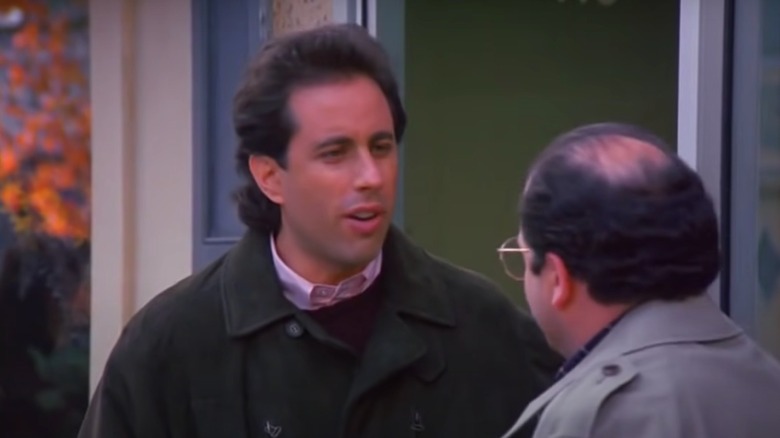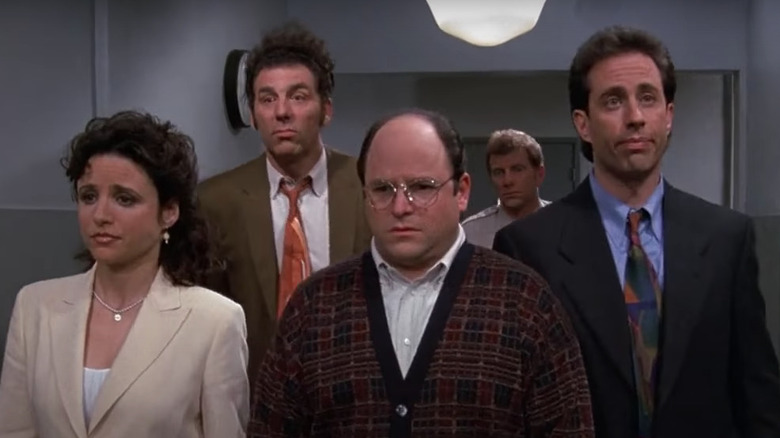Jerry Seinfeld Attributes Seinfeld's Success To Its 'Handmade' Production
It's difficult to produce a sitcom and have it go on the air, but actually keeping it running for multiple seasons is like hitting the TV lottery. With "Seinfeld," not only did the NBC series achieve the amazing feat of lasting nine seasons, but it's considered by many as one of the greatest sitcoms of all time. But what was the formula that allowed the show to reach the heights that it did? Its titular star, Jerry Seinfeld, believes it was because its production had such a unique recipe to it.
As I'm sure most of you know, "Seinfeld" follows Jerry (Seinfeld) in his everyday life as a standup comedian and actor in '90s New York. However, viewers only got to see Jerry perform at the very beginning of each episode because the show mainly focuses on his interactions with friends George Costanza (Jason Alexander), Elaine Benes (Julia Louis-Dreyfus), and Cosmo Kramer (Michael Richards) — all of whom are larger-than-life characters. Over the years, the series touched upon an array of real-life comedic situations, attracting as many diversified fans as one can hope.
One characteristic of the show — and something that was mentioned in a meta fashion in a few episodes — is that the series was really about nothing. Each time fans tuned in, there was no telling what was in store for the main cast, mostly because it almost never connected to the previous installment. The laughs came from the fact that no matter what the storyline was, these four unique characters were plenty of entertainment in themselves. However, as Seinfeld explains it, in addition to the great characters, the way the show was made was hugely important to its success.
Less studio interference resulted in TV magic
When a series like "Seinfeld" not only goes on for nine seasons but also leaves fans wanting more, the writers and producers had to have been doing something right. In January 1993 midway through Season 4, when co-creator and star Jerry Seinfeld spoke to now-disgraced Charlie Rose, he explained that the show benefited from being a "handmade production." In other words, it was able to stay away from corporate interference. "This is a sitcom that is not processed through [a] network, through a large studio system," Seinfeld added.
Seinfeld noted that there weren't too many cooks in the kitchen either. "It's a few people working on this thing," he said, "and we're just doing what we think it's funny." Seinfeld rightfully reiterated the fact that the lead actors played a huge part in the show's success as well. "It's an amazing group of talent, I mean each one of the people in our cast could easily hold down their own show," he declared.
When looking back at "Seinfeld," there was at least one other cast member that made the show what it was. In March 2002 — a little less than four years after the show ended — Julia Louis-Dreyfus told Rose that the series gave her a lot of creative satisfaction. "It was just a great group of people at the right place at the right time," she said. "And we had a lot of fun, we enjoyed the process and I think that translated."

